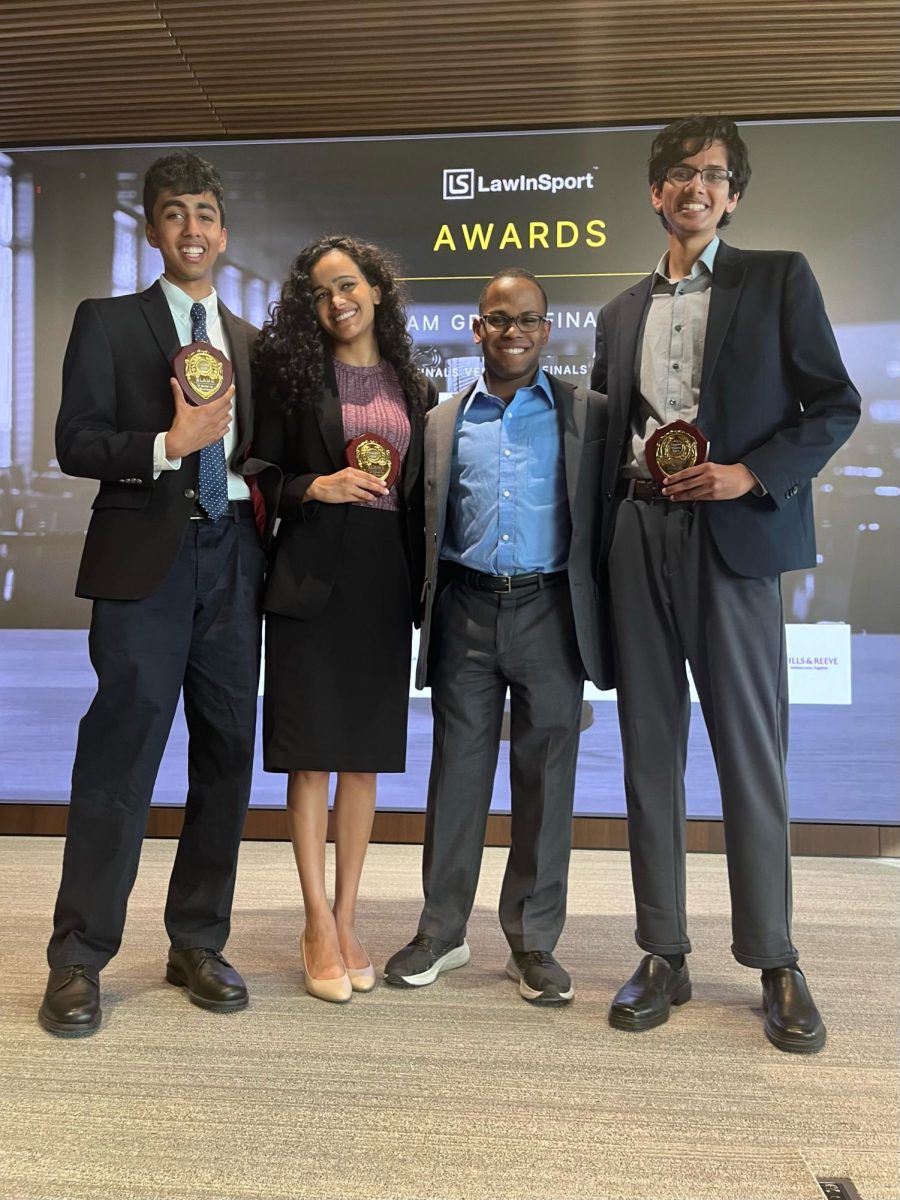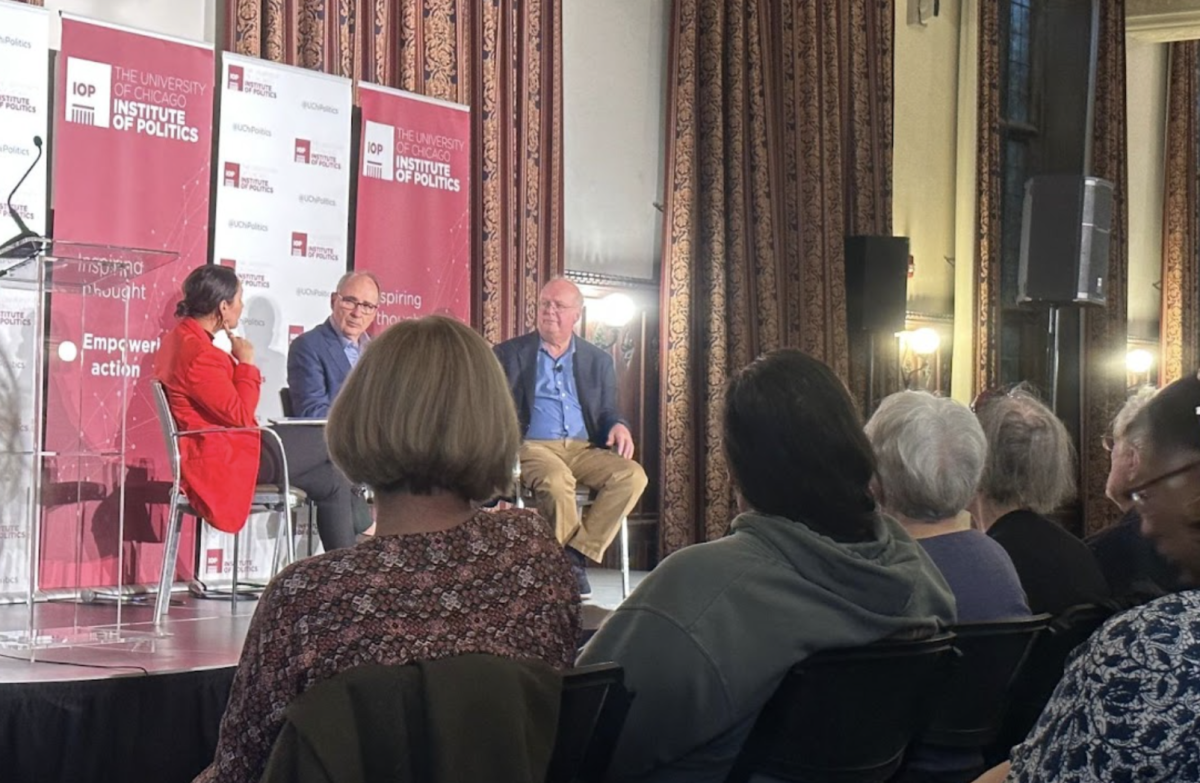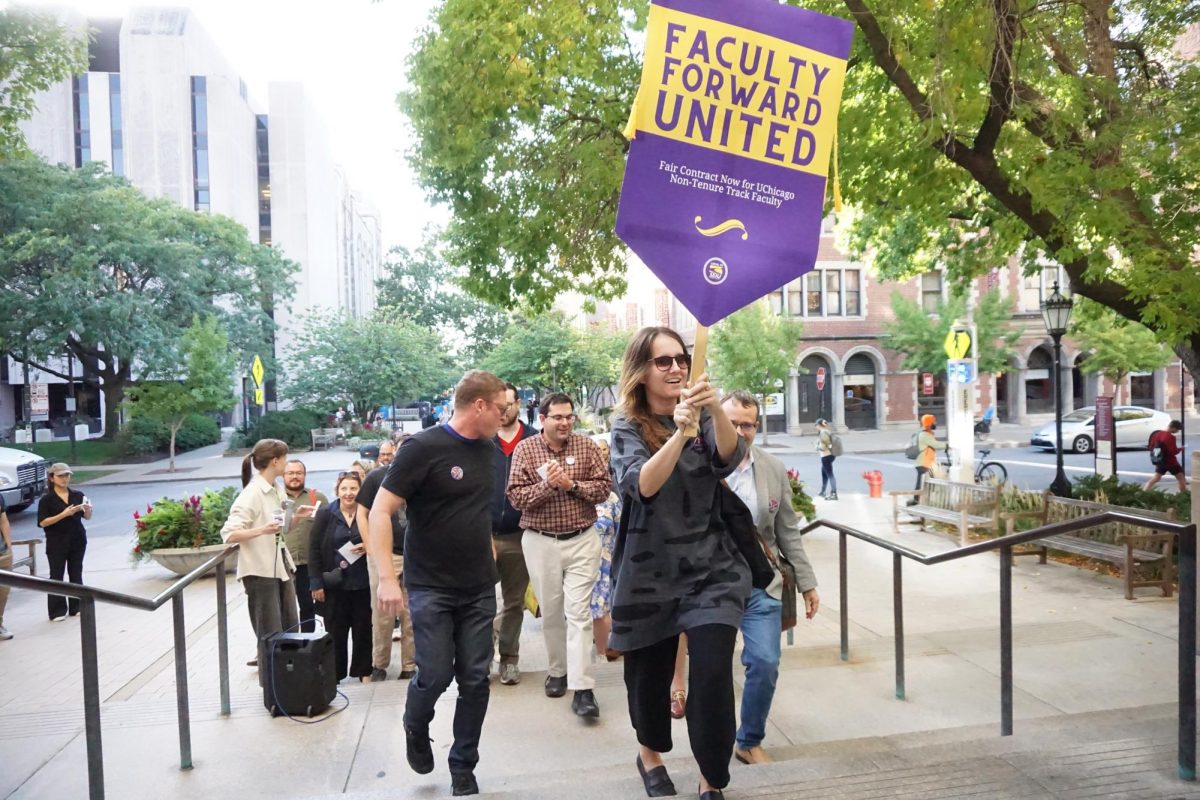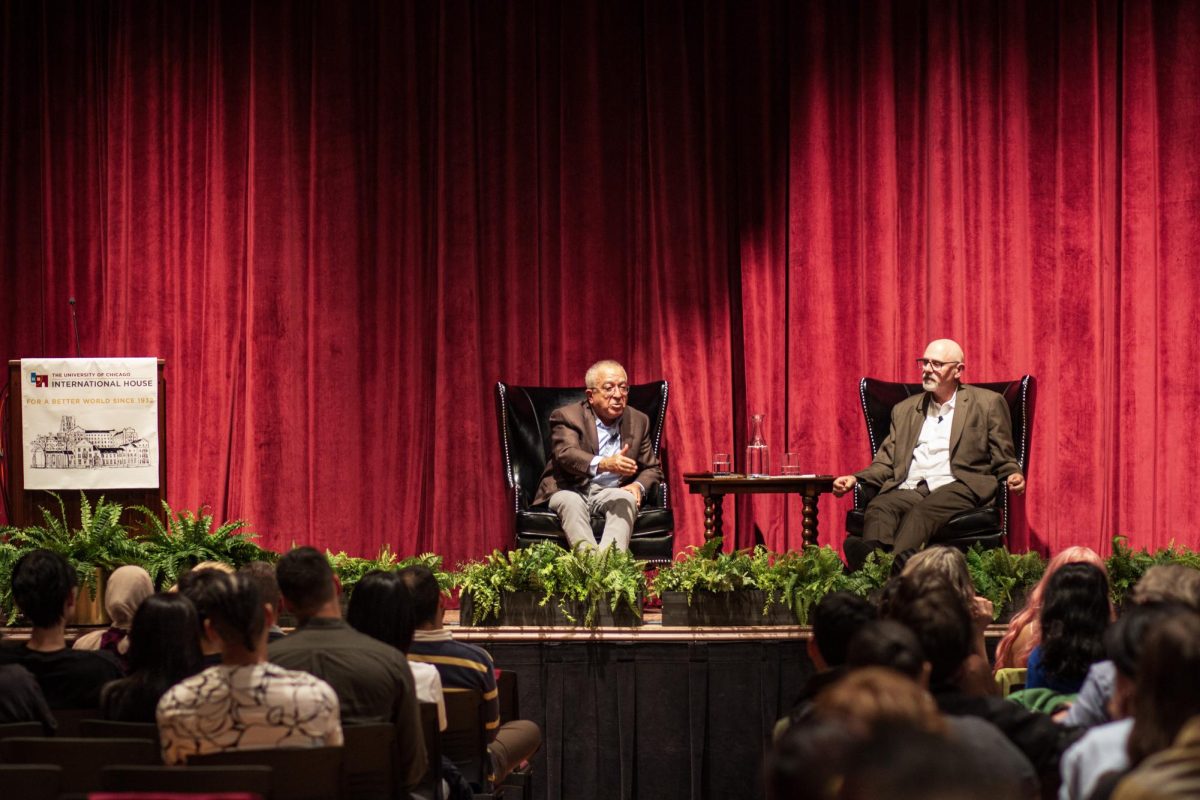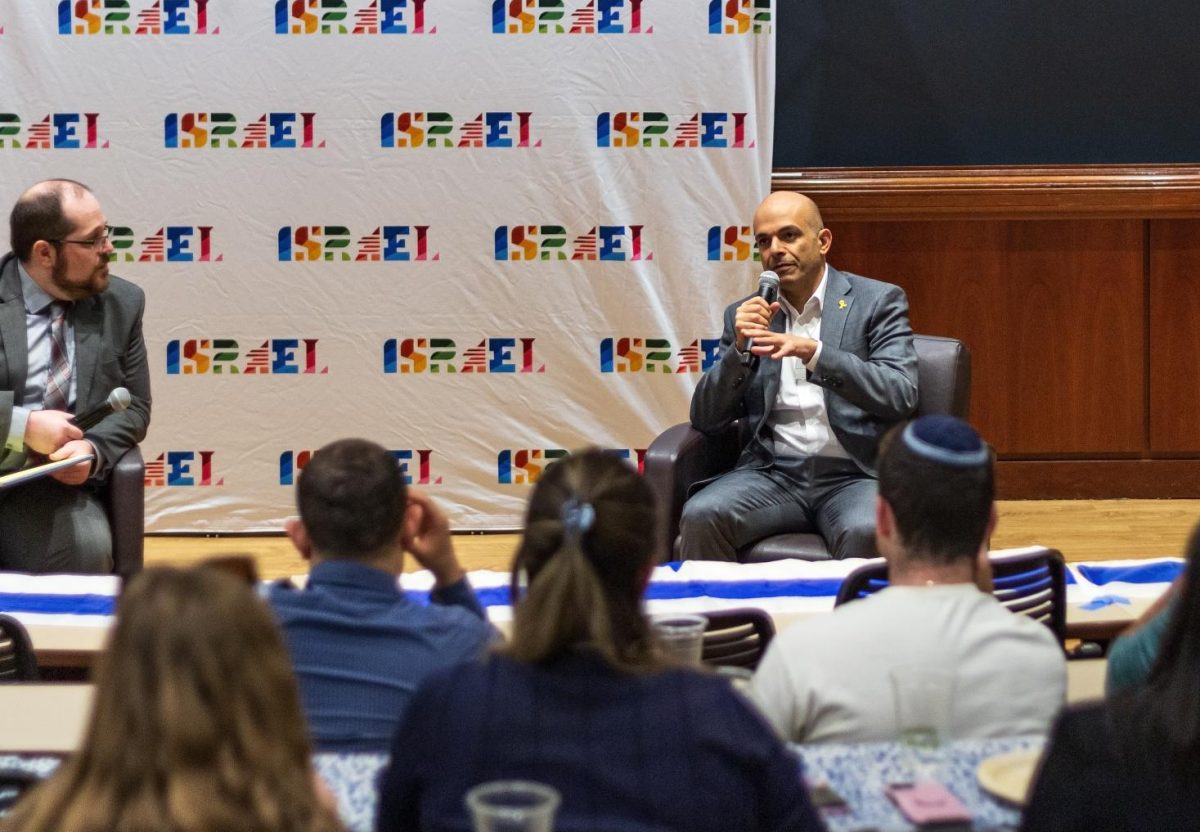The room was posh, the free food plentiful, and the few who came to see Jack Fuller, recently retired president of Tribune Publishing, speak at the Alumni House last Tuesday were not disappointed.
Student Government and the Chicago Maroon sponsored the Fireside Chat with Fuller, who serves on the University of Chicago Board of Trustees.
Fuller spoke of his legendary career as a journalist and novelist who began working for the Tribune at the age of 16, and entertained the small group of listeners with tips and anecdotes for nearly two hours. His life has followed a path he described as largely serendipitous: He was a copyboy in high school, a police reporter by age 18, a Pacific Stars and Stripes correspondent during the Vietnam War, a lawyer, then returned to reporting to become an editor, novelist, and eventually a top executive.
As a reporter for the now defunct Chicago Daily News, Fuller “became an expert” at covering race riots, and reported on the 1968 Democratic National Convention. After serving in Vietnam and attending law school at Yale, he covered the Watergate scandal for the Washington Post. “I’m beginning to sound like Zelig,” he said, referencing Woody Allen’s ubiquitous chameleon character, in disbelief at his own stories.
Fed up with the police beat, Fuller eventually got in contact with former University of Chicago president Edward Levi who, on the heels of his inauguration as U.S. Attorney General, invited Fuller to join his staff. “He used us, he threw us right in,” said Fuller, recounting his first day in D.C., with Levi telling him, “You’re going to draft the testimonial I’m going to give you on the contents of J. Edgar Hoover’s confidential files.”
After his stint as a lawyer, and an unfulfilling spell in the Washington bureau of the Tribune, Fuller was asked to head the Tribune’s editorial department. Commenting on what he brought to his new position, Fuller noted that new leadership should never be a carbon copy of the old. “If you’re ever in a position where you can pick a replacement you ought to be finding people who can do not what you did, but what you couldn’t do,” he said.
Along with winning half a dozen Pulitzer prizes for the Tribune editorial page, Fuller published his first novel on the Vietnam War, which he had begun while at Yale, but had been obliged to wait for a more favorable climate.
Fuller attributed his talent as a novelist to a literary approach to reporting. When asked what it takes to succeed in journalism he replied: “If you’re going to be a reporter, a journalist—first of all, you have to learn to write really well. You have to learn classical writing, not stylized journalism.”
In a world where new sources of information and entertainment are born each day, Fuller described being on the frontlines of one of the oldest, and perhaps most endangered, news providers. “Something people your age do is change journalism all the time,” he explained. “If you’re a journalist today, you have to realize video games are part of your competition, TIVO is part of your competition.”
Asked about the role of objectivity in reporting, Fuller addressed what he sees as a “distrust of emotion,” in the American journalistic tradition—something he called an inherently incorrect practice “based on a model which is simply wrong. It’s based on the Greek method and modern neuroscience effectively disproves it.” The insistence on neutrality has forced a public exodus from institutions that “really try to do that to institutions which say they do [act objectively] but don’t, or ironically admit to it.”
At times Fuller painted a bleak picture of the future for journalism. If the ideal of journalistic writing continues to be an emotionless, voiceless plane, the public will not be drawn to it. “It will change journalism—with a minority reading very specialized publications and the majority reading crap.”
6-03-05-jack-fuller.jpg



